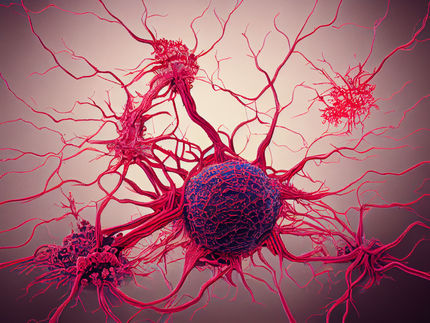Skin rejuvenation for cancer prevention
Turning back the epigenetic clock in skin cells: DKFZ and Beiersdorf establish Joint Innovation Lab
Advertisement
Rejuvenating skin and preventing skin cancer: That is the vision of the scientists at the new Joint Innovation Lab, which Beiersdorf and the German cancer Research Center (DKFZ) founded on July 1, 2023. In the jointly operated lab, researchers are taking a close look at the "epigenetic clock" of skin cells with the aim of turning back biological aging and thus also reducing the risk of skin cancer.
The cells of our skin - like all other cells of the body - contain a form of molecular clock that indicates our current age. The age can be derived from the so-called epigenetic markers of the genetic material. These small chemical tags have a major impact, deciding which genes in the cells are active and which are silenced. As we age, the pattern of epigenetic markers changes in a characteristic way, and these changes are associated with certain disease risks, including an increased risk of cancer.
In the newly established Joint Innovation Lab of DKFZ and Beiersdorf, scientists intend to investigate how these age-related epigenetic changes affect cellular processes, what signs of aging are associated with them, and how the epigenetic clock in skin cells can possibly be turned back. "Age is the most important known risk factor for developing cancer," says Frank Lyko, head of the Epigenetics Division at DKFZ. "Our vision is to specifically intervene in the skin's epigenetics to biologically rejuvenate skin cells and potentially reduce the risk of skin cancer."
Skin health as shared goal
"More than 140 years ago, skin research was the 'nucleus' of Beiersdorf - and it still is today. Our global skin care company is dedicated to preserving and restoring skin health," says Gitta Neufang, Senior Vice President Research & Development at Beiersdorf. "Exploring skin cells' epigenetic clock takes our important work on the aging process and combines it with the goal of preventing cancer. The close cooperation between our experts in skin biology and DKFZ researchers will create further synergies in this field."
"Research on cancer prevention is one of DKFZ's central tasks. In addition to improvements in primary and secondary prevention - i.e. the prevention of cancer through a healthier lifestyle and more effective early detection - we are increasingly focusing on molecular approaches. This includes the development of targeted active ingredients that prevent healthy cells from degenerating into cancer. That approach aligns exactly with the goals of the Joint Innovation Lab," says Michael Baumann, Chairman of the Board and Chief Scientific Officer of DKFZ.
"By collaborating with DKFZ, we will be able to speed up the search for strategies and model substances that influence both skin aging and carcinogenesis," adds Marc Winnefeld, Head of Applied Skin Research at Beiersdorf.
With the establishment of the Joint Innovation Lab, the DKFZ and Beiersdorf are stepping up their long-standing research collaboration: Frank Lyko and Beiersdorf scientists have already been investigating the epigenetics of skin cells since 2008, for example with the aim of better understanding the influence of UV radiation. The Beiersdorf Group with its renowned international brand names filed around 50 new patents worldwide in 2022 and invested 291 million euros in R&D. It has set important trends in the industry, particularly with its research on UV protection filters for sun creams.
Budget of 4.8 million euros allocated for four years
Knowledge of the epigenetic clock has expanded enormously since the start of the collaboration. Various studies have already succeeded in turning back the epigenetic clock and thus rejuvenating different tissues - without any recognizable harmful side effects. "We have now reached a stage of research that also brings substantial epigenetic rejuvenation of human cells within reach," explains Winnefeld. "This means we are pursuing a completely new approach to the prevention of skin cancer," adds Frank Lyko.
For Beiersdorf, the establishment of the joint laboratory with the DKFZ is the first institutionalized cooperation with an academic research institution. The DKFZ-Beiersdorf Joint Innovation Lab, which is based at the DKFZ in Heidelberg, is initially scheduled to run for four years. Both partners are investing a total of 4.8 million euros in the project; the annual share is 600,000 euros for each institution. The staff in the joint lab will have access to the DKFZ's research infrastructure.


























































